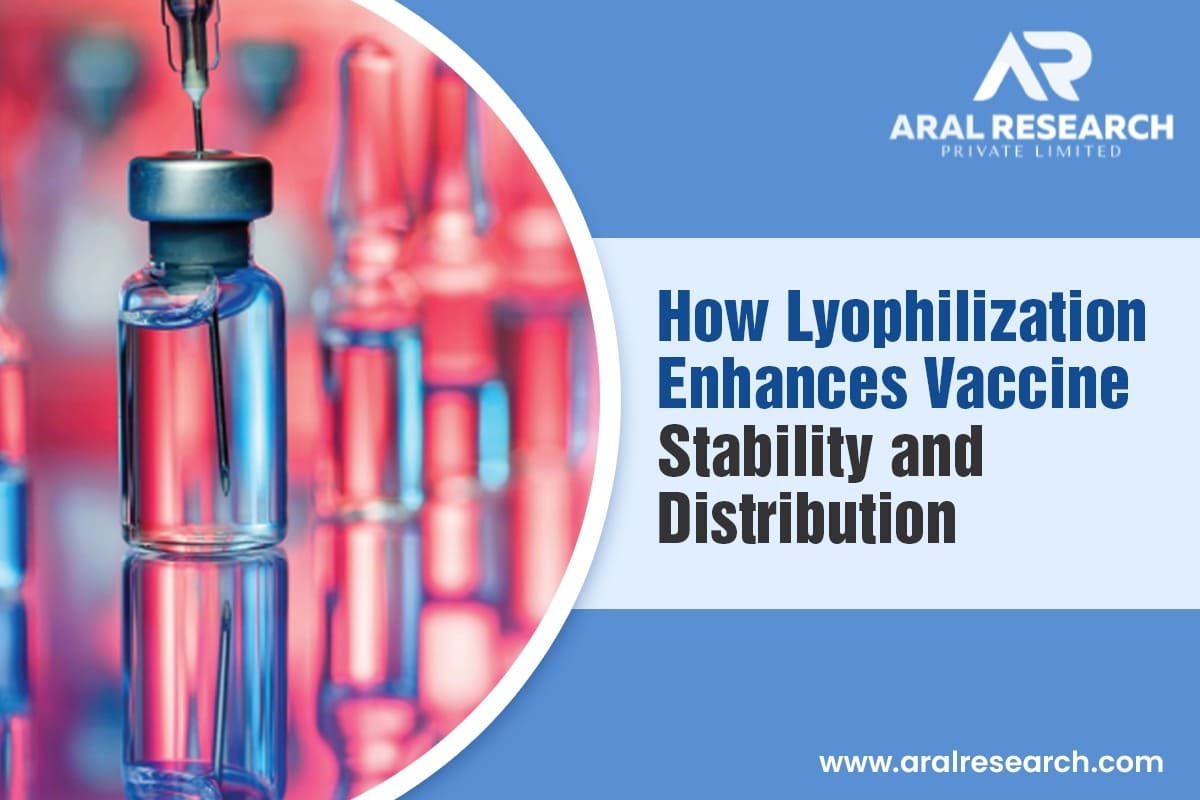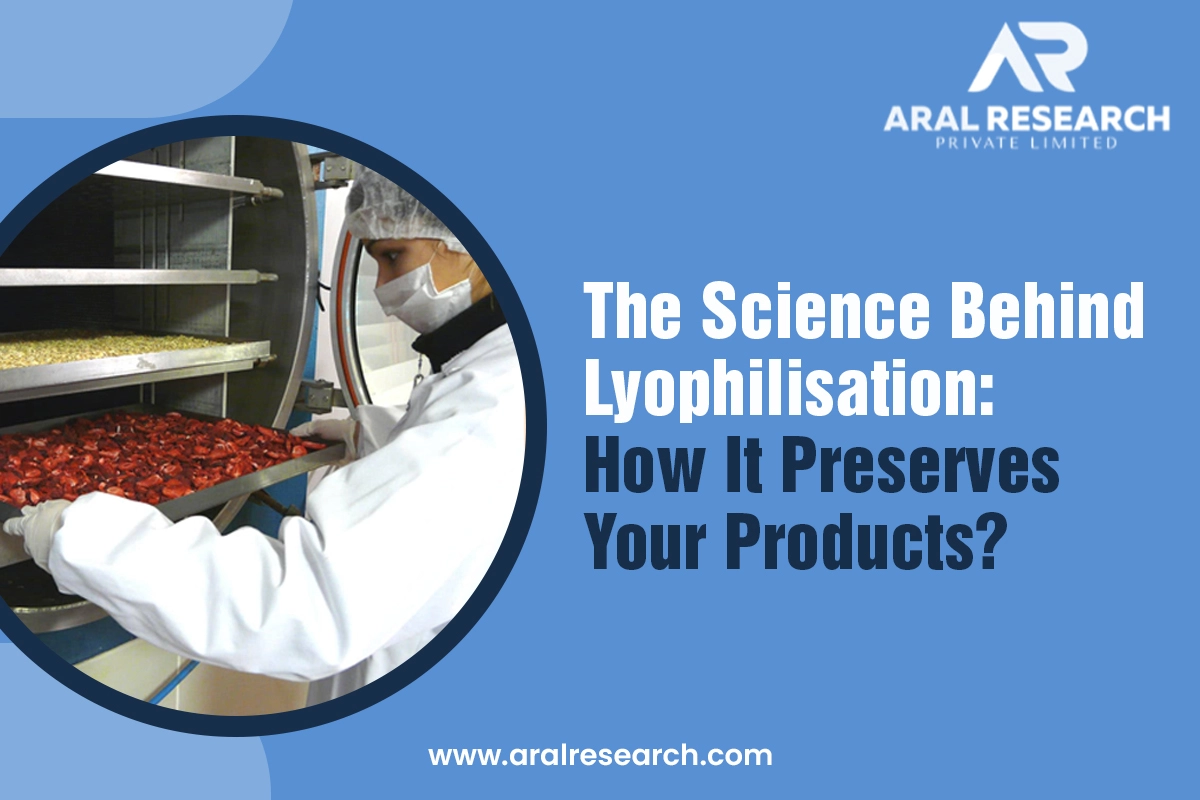Highly successful vaccines induce specific immune responses and protect against deadly viral diseases. One of the major challenges of human and livestock vaccines is vaccine stability due to infectivity and antigenicity. Vaccine formulations are subject to instability due to degradation through physical and chemical pathways. Lyophilization enhances vaccine stability and distribution. It helps to maintain vaccine stability and supports cold chain transportation that requires 2 degrees Celsius to -8 degrees Celsius.
Lyophilization To Enhance Vaccine Stability and Distribution
Lyophilization, also known as freeze-drying, plays a crucial role in the vaccine industry. It is used to manufacture vaccines composed of lyophilized proteins and adjuvants while maintaining optimal potency. Once the vaccines are lyophilized, they remain stable even at higher temperatures, such as 40 degrees Celsius, for an extended period. This eliminates the need to worry about maintaining vaccine stability at higher temperatures, reduces the loss of vaccine activity, and controls the economic cost of vaccine production and distribution, which are major challenges faced by the vaccine industry. Aral Research offers exceptional lyophilisation services in Ahmedabad for your product formulations, API, drugs, and other compounds. If you are considering lyophilizing your product, we are here to help.
How Are Vaccines Lyophillized?
Lyophilization or freeze-drying is a method for drying vaccines. It consists of three steps:
- Freezing, where the liquid is converted to ice.
- Primary drying, where the ice is removed through sublimation.
- Secondary drying, where the residual water is removed through desorption.
Lyophilization allows drying without destabilizing temperatures that could damage the antigens. Moreover, this process operates as an aseptic process, allowing the final product to meet stringent pharmaceutical standards and regulations.
Lypholilization in the Pharmaceutical Industry
Lyophilization is a crucial process in the pharmaceutical industry, especially for preserving sensitive drugs that cannot be produced by traditional techniques. Pharmaceutical companies use this method to lyophilize eye drops, injections, and other delicate drugs. In the biopharmaceutical sector, it is used to preserve proteins and peptides for long-term storage, providing unstable biologics with a longer shelf life and stability for wider distribution.
Aral Research: Your Trusted Partner for Lyophilization
Aral Research is one of the most trusted HPLC testing labs in Ahmedabad, offering exceptional lyophilization services. With a proven track record of working within the industry from simple to complex drug formulation, we are your trusted partner for lyophilization. We manage the entire process, from formulation to final product, ensuring your product is lyophilized, packed, and shipped as per your specifications. To partner with us for lyophilization, call us.
Read Now:- The Science Behind Lyophilisation: How It Preserves Your Products?


